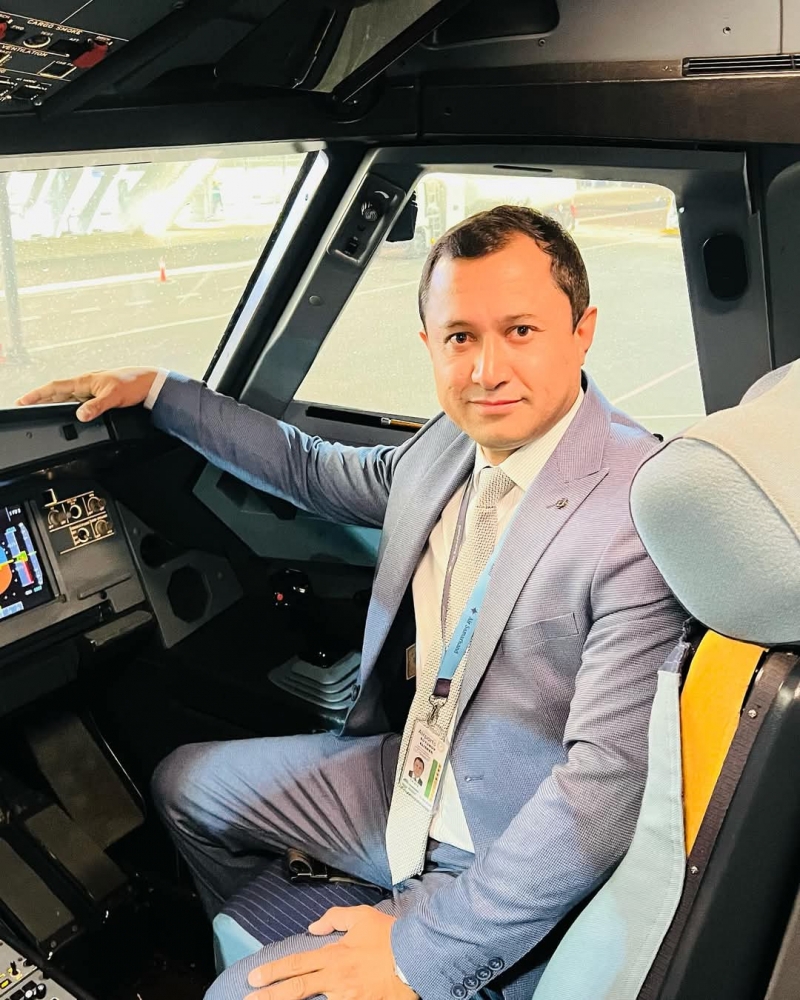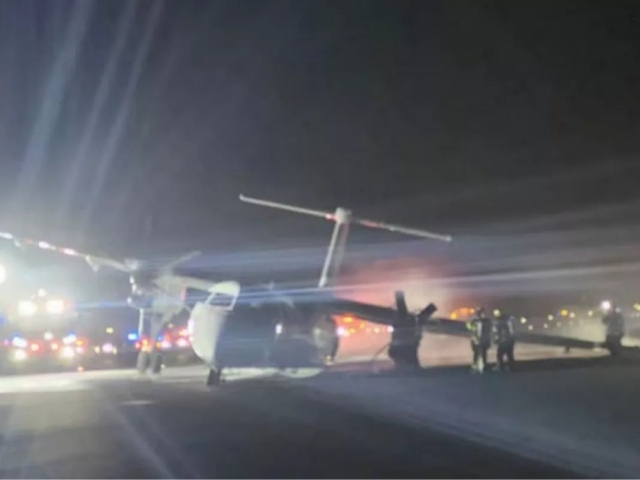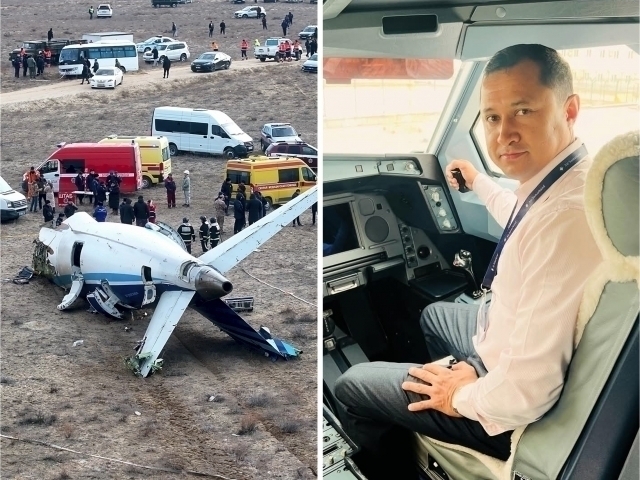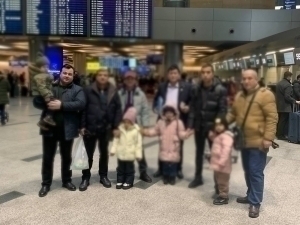Navigating danger in the skies: Insights from Uzbek aviation expert
Review
−
29 December 2024 45543 6 minutes
On December 25 of this year, an Azerbaijan Airlines plane on the Baku-Grozny route crashed. There were 62 passengers and five crew members on board. 38 people died in the crash, while 29 survived. Initially, it was said that the plane crashed due to a collision with a flock of birds. However, later Euronews, citing sources in the Azerbaijani government, announced that the crash was caused by a surface-to-air missile launched by Russia.
Yesterday, on December 28, Russian President Vladimir Putin called Azerbaijani President Ilham Aliyev and apologized for the tragic incident involving an Azerbaijani airliner in Russian airspace. As a reason, he cited the fact that at that time Grozny, Mozdok, and Vladikavkaz were attacked by Ukrainian combat drones, and Russian air defense systems were repelling these attacks.
So, how reliable is the reason given by Putin? After this incident, why did Uzbekistan, unlike many countries, suspend flights to Russia? In general, how safe are the skies of the world today? QALAMPIR.UZ received answers to all these questions from Alisher Suyunov, an Uzbek pilot and head of ground services at Air Samarkand. He said that there are certain rules and procedures for landing an aircraft in emergencies.

“When an aircraft encounters an emergency in the air, each pilot follows strict protocols based on international aviation regulations. According to the rules of the International Civil Aviation Organization (ICAO), the main goal is to ensure the safety of passengers, crew, and aircraft. In an emergency, the pilot will:
- Assess the situation and determine the nearest safe airport.
- Contact the air traffic control (ATC) and request permission.
- Prepare passengers for a safe landing and take all safety measures,” Suyunov said.
Therefore, the Uzbek aviator did not approve of Russia’s decision not to land the Azerbaijani plane. He argued that in any case, the Federation should have followed international norms.
“Russia did not allow the Azerbaijani plane to land on its territory. The Russian side explained this by the fact that the regions of Grozny, Mozdok, and Vladikavkaz were attacked by Ukrainian drones. This decision may be justified from a security perspective, but according to international aviation rules, assistance to any aircraft is required in emergencies.
In this case, the conflict between security and diplomatic obligations was manifested. Aviation safety is ensured not only by technological means but also by effective cooperation and trust between states. It is also possible that the hydraulic system of the aircraft has failed. Because the signs during the landing indicate this,” said the long-time pilot.
Russia's reaction to the Azerbaijani plane has made many world airlines hesitate for this very safety reason. As a result, Kazakhstan, Turkmenistan, Israel, Dubai, and Azerbaijan's airlines temporarily suspended flights to Russia. Also, Uzbek MP and leader of the Milliy Tiklanish democratic party Alisher Kadyrov sent a request to the relevant organizations to check whether Russian airspace is safe. However, the organizations that are said to be related to him have not yet responded to his request. Uzbekistan Airways operates flights to all cities in Russia, even to Makhachkala and Grozny, where the Azerbaijani plane crashed. Why is Uzbekistan not suspending flights to Russia, whose skies are dangerous? Alisher Suyunov, head of ground services at Air Samarkand, explained this by confidence in economic ties, geopolitical neutrality, and security.
“After the events in Aktobe, many countries suspended flights with Russia. But Uzbekistan did not take this measure. This decision is explained by the following:
- Economic reasons: Maintaining air routes with Russia is important for labor migration and economic ties. Because millions of Uzbek compatriots work there. And I consider it inappropriate to suspend them because of one incident.
- Geopolitical neutrality: Continuing flights with Russia can be seen as a means of maintaining political balance.
- Confidence in security: Security issues are kept under control on the territory of Uzbekistan,” Suyunov replied.
But the pilot also says that safety measures need to be strengthened. In particular, the following should be done:
- Regular safety reviews for flights to Russia.
- Strengthening emergency preparedness and response plans.
The incident with the Azerbaijani plane is not the only plane crash. Today, December 29, a plane with 181 people on board crashed at an airport in South Korea. The plane skidded off the runway at Muan International Airport in the southwest of the country and hit a barrier outside the runway, where it caught fire. In addition, a plane in Canada also caught fire after an unsuccessful landing.

Are such crashes and unsuccessful landings a normal occurrence in the aviation system, or is all this a sign of the increasing danger in the world's skies today?
“Such incidents are rare in aviation, but they raise serious safety questions:
- The sharp increase in air traffic after the pandemic has put additional pressure on the aviation system.
- Poor maintenance and aging aircraft are increasing risks.
- Geopolitical conflicts are negatively affecting air safety,” Alisher Suyunov cited the reasons.
However, he said that overall figures show that aviation remains the safest means of transport in the world. According to the Uzbek pilot, the probability of accidents in aviation is significantly lower due to high technology, constant monitoring, and additional safety standards. The casualty rate is 0.00002 percent compared to passengers. This is much lower than the number of victims involved in railways, watercraft, and automobiles.
However, he is concerned about the current state of the world's skies.
“Based on recent events, factors such as geopolitical conflict, technological dependence, and climate change are threatening security:
- Geopolitical situations such as the Ukraine-Russia conflict are seriously affecting air safety.
- Technological problems, including failures in automated systems, can increase errors.
- Extreme weather conditions due to climate change are creating additional risks for aviation,” he said.
The experienced Uzbek aviator recalled that international aviation organizations are paying great attention to improving technologies to ensure safety, developing surveillance systems, and early detection of threats, as a result of which more than 100 thousand military or commercial flights are taking place every hour around the world.
Live
All




